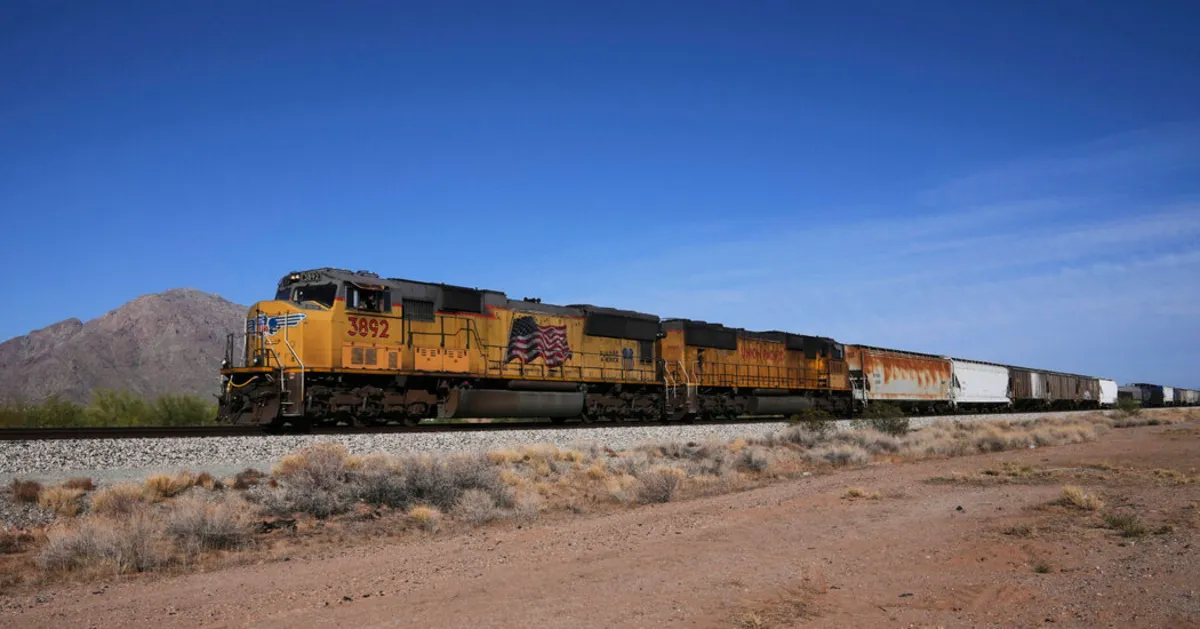
Union Pacific, a leading freight rail giant, has made headlines with its announcement on Tuesday regarding a significant strategic move in the railroad industry. The company has reached an agreement to acquire Norfolk Southern, another major player in the railroad sector, in a deal valued at an impressive $85 billion. This merger promises to create the first coast-to-coast rail network in the United States, extending approximately 50,000 miles across 43 states.
While the merger has potential benefits, it raises significant concerns about competition within the freight rail industry. With around two-fifths of the nation’s rail freight projected to be controlled by a single entity, there are fears that this consolidation could reduce competition in a critical sector of the economy. The combined operations of Union Pacific, which predominantly serves areas west of the Mississippi River, and Norfolk Southern, which operates mainly in the east, will reshape the landscape of rail freight transportation.
According to both companies, the new entity, which will be named the Union Pacific Transcontinental Railroad, is expected to enhance freight delivery efficiency by streamlining operations. By eliminating the need for freight to switch between different railroads, the merger aims to open new transportation routes and expedite delivery times across the country. “Railroads have been an integral part of building America since the Industrial Revolution, and this transaction is the next step in advancing the industry,” stated Jim Vena, the chief executive of Union Pacific, in a press release.
Union Pacific has indicated that the acquisition will be financed through a combination of cash and stock offered to Norfolk Southern. The merger is projected to create a workforce of over 50,000 employees, with approximately four-fifths of these workers belonging to labor unions. This significant workforce will be crucial in maintaining operations and ensuring the reliability of rail services post-merger.
The announcement comes at a sensitive time for Norfolk Southern, particularly following the derailment of a train carrying hazardous materials in East Palestine, Ohio, two and a half years ago. This incident had a profound impact on the local community, leading to ongoing challenges. Additionally, the company faced internal turmoil last year when its chief executive was dismissed due to personal misconduct involving the chief legal officer.
Industry experts have weighed in on the implications of this merger. Tony Hatch, a seasoned rail analyst at ABH Consulting, mentioned, “It will make the railroads more efficient. And it adds reliability, which is the biggest rail issue.” This perspective highlights the potential advantages of the merger while also acknowledging the critical role of reliability in freight transportation.
The proposed merger between Union Pacific and Norfolk Southern marks a pivotal moment in the evolution of the U.S. railroad industry. As the companies move forward with their plans, stakeholders will be closely monitoring the developments to assess the long-term impacts on competition, efficiency, and service reliability in the freight rail sector.